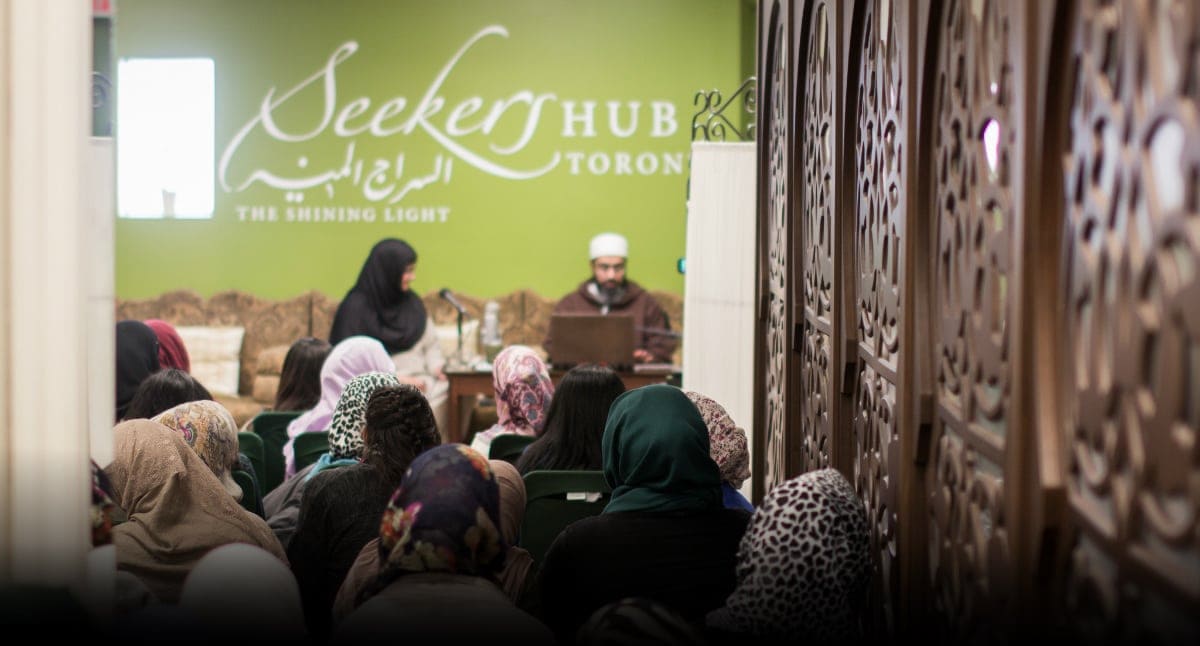Never an Empty Shell: The Purpose of Guidance
Islam is a difficult word for many to grapple with these days. Associated with some of the ugliest images we see in the media, both Muslims and non-Muslims today have found themselves confused by what this term means and what set of values it represents. While most Muslims argue that the greatest value it represents is mercy, some – be they extremists or news pundits – make very different claims regarding what Islam is about, seeing it either as a fascist philosophy promoting violence or an empty shell of rules and regulations meant to control society. Frustratingly, these people use and interpret Islam’s own texts to promote such views, leading to much confusion and doubt among Muslims and their non-Muslim peers.
Beyond sensationalism
So what is Islam really about? In SeekersHub course The Absolute Essentials of Islam (Hanafi), Shaykh Faraz Rabbani offers some insight into this question.
Shaykh Faraz begins to discuss Islam by moving beyond the sensationalism and spectacle of the media, saying that, ultimately, Islam offers what all serious religions and philosophies attempt to provide: an explanation for the miraculous and jarring fact of our existence.
“If you look at human beings in this life, their example is like someone who wakes up on a train that’s moving really fast,” said Shaykh Faraz. “Those of intelligence, if they suddenly woke up and found themselves on a train that is moving, they’d ask themselves certain urgent questions… How did I get here? Where am I going? What’s going to happen? Then, given all that, what am I supposed to be doing while I’m [here]?”
These questions have weighed on some of the greatest human minds, from ancient philosophers to modern quantum physicists, and the discussions emerging from them among Muslim scholars, under the subject of creed (aqidah) are the foundation on which Islam rests. Ignoring them means building a religion on shaky ground, and ultimately makes religion collapse in on itself.
Such topics are completely off the radar of the fanatics and Islamophobes who put forward a shallow and contorted image of this faith. They prefer to focus on the laws of Islam as the ultimate manifestation of religiousity, but even then their focus on the law is imbalanced.
Sharia as the ethic of mercy
The shari’a, or legal system, of Islam is one that has always been founded on the ethic of mercy, said Shaykh Faraz. Any legal rulings that are not founded on mercy cannot be considered true to the tradition of the Prophet (pbuh), who was a fount of mercy.
“Every teaching of Islam is a manifestation of divine mercy, and any understanding of Islam that is lacking in mercy is lacking in understanding,” said Shaykh Faraz, quoting well-known scholar Shaykh Abdal Hakim Murad.
The root of extremism
 The lack of mercy present in the Islam put forward by extremists often stems from two things. The first is when people not properly trained by qualified teachers begin to take rulings from old books of law without understanding the context those rulings were used in nor the context in which they must be interpreted and applied today. This is contrary to much of Islamic history, when scholars underwent decades of training in vast subjects so they could appropriately understand how the law could fit into the cultures and expectations of their time.
The lack of mercy present in the Islam put forward by extremists often stems from two things. The first is when people not properly trained by qualified teachers begin to take rulings from old books of law without understanding the context those rulings were used in nor the context in which they must be interpreted and applied today. This is contrary to much of Islamic history, when scholars underwent decades of training in vast subjects so they could appropriately understand how the law could fit into the cultures and expectations of their time.
The second reason the brand of Islam expounded by extremists lacks mercy is that it is completely cut off from what has traditionally been the heart of the faith: ihsan, or spiritual excellence. Throughout the centuries, it was well-accepted that as a Muslim one had to constantly strive against one’s ego. Sins like greed, jealousy, lust and a hunger for power – present in many extremist ideologies – had to be continuously purged from the heart. If they were not removed from the heart of the one representing Islam or putting forward Islamic law, then what would come from that person is spiritual poison merely coated with an Islamic veneer. This is far from what the Prophet ﷺ taught.
Never an empty shell
“The teaching of the Prophet ﷺ was not merely to transmit guidance,” said Shaykh Faraz, “but also to explain to us and manifest to us the very purpose of guidance, which is… how to be characterized by excellence in your relating to God and your relating to God’s creation.”
Islam, when understood and practiced correctly, was never an empty shell of rules and regulations that could be twisted to conform to the destructive desires of extremists. It was and remains a path to reflecting God’s love, mercy and beauty as we make good our relationship with Him and serve Him in this world.
Nour Merza
To learn more about what Islam truly represents and how it functions as a practical source of wisdom and mercy in a Muslim’s life, sign up for our Absolute Essentials of Islam (Hanafi) course today!
